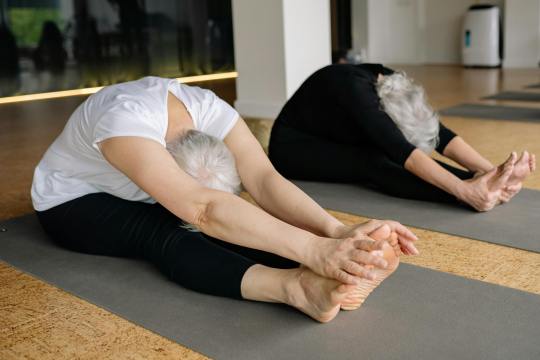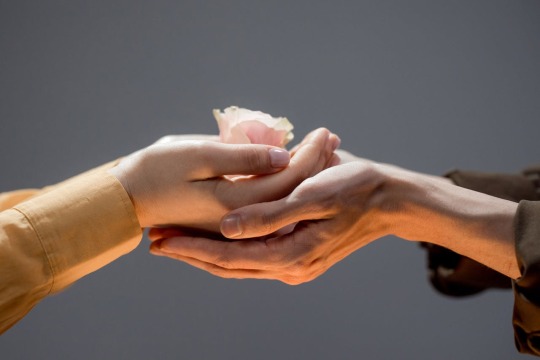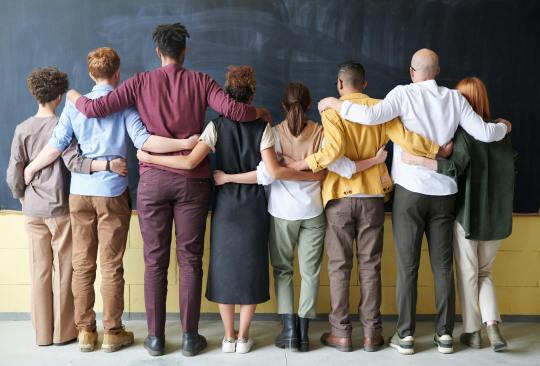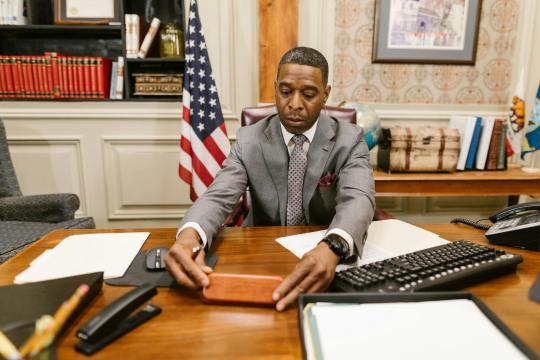Elliot Sands is an executive management professional with over 15 years of experience. Throughout his career, he has successfully implemented strategic plans to maximize business and organizational efficiency. In 2021, Elliot Sands joined the SHP Foundation as chief operating officer. His COO role entails overseeing all ongoing projects while meeting company goals. Mr. Sands also co-founded CirrusMD in 2012. He contributed to the platform’s design and financial development to facilitate text and video chat interactions between patients and physicians. The communications platform currently facilitates more than 3,000 medical encounters daily. Mr. Sands obtained a bachelor’s degree in religious studies from Westmont College. He later earned an MBA in marketing and finance, and went on to attend Western Seminary to complete a master of divinity in exegetical theology. A board member of the Christian mission organization Missions Door, Mr. Sands joins his wife, Penny, to offer counseling sessions and Sunday lessons at the local church.
Don't wanna be here? Send us removal request.
Text
Study Links Midlife Dietary Patterns with Overall Healthy Aging

In March 2025, Harvard T.H. Chan School of Public Health researchers, in cooperation with researchers in Montreal and Copenhagen, released results from the first study on midlife dietary patterns and overall healthy aging. Rather than looking at specific diseases or longevity, the researchers studied middle-aged people with no major chronic diseases and no mental health or cognitive issues.
Using the Nurses’ Health Study and the Health Professionals Follow-Up Study, the authors looked at midlife diets and ultimate health outcomes across 105,000 participants 39 to 69. Only 9.3 percent of the study population displayed healthy aging. Those who scored at the top of the Alternative Healthy Eating Index (AHEI) were 86 percent more likely than their cohorts to have good health at age 70 and more than twice as likely to be healthy at age 75.
The AHEI diet offers abundant nuts, legumes, vegetables, fruits, whole grains, and healthy fats. It also limits red and processed meats, sodium, refined ingredients, and beverages with sugar. Another leading diet associated with healthy aging is the Planetary Health Diet Index (PHDI), which minimizes animal-based foods and primarily recommends plant-based items.
0 notes
Text
Tight-Fisted or Open-Handed: How to Start LRK Conversations

Elliot Sands is the host of the Live Faith First podcast. He is also the executive director of Live Faith First which encourages people to bridge societal divides, and to navigate polarization in emotionally healthy ways. His background as a health-tech co-founder, school principal, and nonprofit leader has given him a unique perspective on the world and bridging divides.
My first day of college was filled with anxiety. Could I actually handle college? Would the professors use words that I understood? Would the work be too rigorous? Could I even find the classroom, did I have the right book? I hope I have enough paper and ink to copy down all the notes. I humbly approached my first day of college, wondering if I could even make it through the day.
A few years later I was starting my final semester, and I had one on-campus Sociology class. I was no longer the wide-eyed freshman, I was now the seasoned Senior. I was annoyed by the Freshman, and even more annoyed by a teacher that was trying to take advantage of these poor souls. I pridefully approached my last class of college, going through the motions so I could get the diploma.
I started college with eyes wide open, eager to learn. My hands were in front of me, palms up and open to whatever the professors had to give me. I entered my final class with my arms crossed, a bit of disdain for even having to be in the same room with Freshman, and my fists closed tightly to learning.
Often in life, we move from open-handed learning, to closed-fisted “I-got-this-figured-out.” We were once able to hold our opinions loosely, realizing that there are a bunch of perspectives out there and we’re just trying to gain knowledge. At some point, we transition to “I’ve figured out my perspectives, and I’m done listening, now it’s time to defend my position.” And then sometimes we transition back to the “I’m still figuring this out” stage. The more years I put under my feet, the more I realize I may have less figured out today, than I did twenty years ago.
As we enter polarizing conversations, and lead with Love, Respect and Kindness it’s important that we enter conversations open-handed. That is, hold your truth, opinion, perspective, or viewpoint loosely. That’s not to say you don’t have a well thought out opinion, or that you have to change your perspective. It means that at one point you were a learner, and maybe this person has something small they can add to your current stance.
The other option is to take your truth, opinion, perspective or viewpoint, put it in your hand and squeeze that truth with all you have, putting your hands in a tight-fisted fighting position. This makes LRK so much more difficult because you’re trying to defend your position with fists. There’s no willingness to hear somebody else, the only goal is to defend yourself and your position.
As I think back to my freshman year of college, I can vividly remember statements that professors made. I open-handedly approached each class, willing to learn, grow and take in new viewpoints. I don’t remember anything from that Sociology class, I’m sure it was an amazing class, but I had closed my hands to learning.
As we navigate polarized conversations, the first step is to enter humbly open-handed. Willing to hold opinions loosely, so that you can hear what somebody else has to say. Maybe you’ll learn something along the way, if not, your emotional and relational life remains intact and that’s a huge win.
0 notes
Text
Upside Down on a Barbed-Wire Fence

Elliot Sands is the Executive Director of Live Faith First and host of the Live Faith First podcast. Under Elliot’s leadership Live Faith First has become a leading voice in addressing division in society. Their latest Love, Respect and Kindness (LRK) campaign had over 100 million impressions across multiple media and social media platforms in California and the Nation.
I was riding a new trail in the Santa Cruz mountains. The narrow trail took me down over a tree root and between a large tree and a barbed wire fence. The goal of mountain biking is to NOT get off your bike and walk. You want to navigate whatever is in your way, so I took it on. As I got to the root crossing the trail, I looked up and started staring at the barbed wire fence. I took my eyes off the trail, and started staring at the danger. My front tire got stuck on the root, and I went over the handlebars right onto what I was staring at–the barbed wire fence. I ended up with my feet in the air, my head on the dirt and my back against the barbs. I was all upside down.
There’s a saying “Where you look, you will go.” I find that to be true for more than just mountain biking. When it comes to contempt and polarization when I stare at polarization I go there. It’s the same with fear and anxiety, the more I feed my mind with fearful and anxious thoughts the more fearful and anxious I get. On the other side of the fence, when I stare at things that are encouraging and uplifting, my emotions, thoughts, words and actions follow.
The first week of June, 2020, was a breaking point for me. I was totally overwhelmed. Tuesday, June 9, I was on a work staff call and an inconsequential statement was made, and my internal emotional response was massive, totally incongruous with the statement that was made. I realized that I had reached a breaking point, it was too much, and something had to change if I were to navigate the next weeks and months well. I became very purposeful about what I looked at and who I interacted with. I turned off the news feeds, and all social media and chose to consume encouraging content. I read biographies about people whose lives weren’t easy but their resilience and grit was inspiring. I decided to start my day reading encouraging words and spending quiet time thinking and journaling about those words. Because face to face interaction was still limited, I chose to only call and talk to people that encouraged me. I avoided the draining people until I had enough reserves in the emotional tank. It took a while for the tank to refill, but it did. I purposefully looked where I wanted to go, and filled my mind with thoughts that got me there.
Statistics tell us that election seasons are exhausting and in some people can cause depression and anxiety. What you stare at can feed into the anxiety, fear and polarization. Here’s some things you can do to get you on the path of living Love, Respect and Kindness–LRK.
Do you have intrusive thoughts of fear or contempt? Ask yourself, what is feeding those? Is there a time of day they seem to peak? Can you pin-point what seems to bring them on? Is it right after watching a particular show, listening to a podcast, or scrolling a feed? If so, curtailing or cutting out those sources may be the best option.
Are there times when you move toward “us versus them” thinking, where the people on the other side become the enemies? Does that seem to happen when you see lawn signs in your neighborhood? Does it happen when you listen to the news? The suggestion is different this time-talk to the neighbor that is supporting the other candidate. Don’t start with political talk–that’s too much, too fast. Have a conversation about the weather, their career, their family, where they were born and raised. Here’s some conversation starters. Rather than avoiding the person you think is the enemy, meet them, talk to them. My experience is that you will have more in common than you would have thought. Someday you can ask them why they vote the way they do, but let’s start with commonality first, that way the conversation will be filled with LRK.
What we look at makes a difference. What we fill our minds with comes out in our emotions, words and actions. Rather than landing upside-down on a barbed wire fence of emotional chaos, polarization and anxiety let’s navigate the trail with Love, Respect and Kindness. Where you look, you will go. Today, let’s look at LRK.
Want more information on how to prioritize LRK in our lives? Watch week 3 of our LRK Course.
0 notes
Text
Gardening in a Mediterranean Climate

Although it borrows its name from the Mediterranean Sea, the Mediterranean climate occurs in many places worldwide, including South Africa and Australia. In the United States, many areas of California have a Mediterranean climate characterized by a dramatic contrast between a wet winter season and a dry summer season. For gardening, the Mediterranean climate offers several pros and cons.
On the positive side, this climate generally has mild, wet winters with many sunny days, which can stretch the growing season nearly year-round. However, the frequent precipitation of the winter season typically gives way to a dry and hot summer.
To keep gardens alive through frequent and lengthy summer droughts, Mediterranean climate gardeners should consider adopting appropriate irrigation systems. Furthermore, they should choose drought-resistant plants that retain water. These plants include tomatoes, beans, squash, and melons. Most Mediterranean climate plants thrive in full to partial sunlight and require good water drainage.
0 notes
Text
The Courage to Choose Love, Respect and Kindness

Elliot Sands is a Silicon Valley Executive with experience in the tech and health-tech space as well as nonprofit management. His most recent project has him working in the bridging movement, encouraging people to cross divides in order to build a more unified society.
Living Love, Respect and Kindness (LRK) takes courage. It is not for the faint of heart, it’s counter-cultural. It’s like swimming upstream – everything is pushing you to go with the contemptuous, argumentative flow and you’re resisting. Love, Respect and Kindness responds differently because you’re focused on something bigger.
I was having a great conversation with my 22-year-old granddaughter. We’ve had lots of conversations over the years, most of them are fun and about the things happening in our lives. This time was different, though. We were talking about opinions and viewpoints and it was a conversation I had wanted to have for quite some time. We were navigating everything well, and then a controversial subject came up that I knew she and I would strongly disagree on. And I was right, we had absolutely opposite views on this topic. I had a choice to make – be right (or at least defend my position with vigor), or put our relationship first. It’s not that our relationship would have ended, but it would have been damaged and the next time something controversial came up, we would tend to either dig in or run away. If I moved us to fight or flight then I realized I probably wouldn’t get another opportunity to have an open conversation, and my priority was to have great conversations regularly. At the end of the day, I value our relationship over my or her opinion on a particular issue.
Living LRK takes courage because we want to defend, engage, to make sure our point is understood. LRK takes courage because on social media, on the news, and even in our local communities, we see people celebrated for loudly standing up for what they believe in. There is a place for getting your point across and being heard, but there’s also a place for prioritizing something else. Relationships should be a priority over being right, because if your differences jeopardize your relationship, you’ll never have a chance to have that conversation again.
That day with my granddaughter, I kindly told her that I think she and I are on opposite sides of that issue. We both have good reasons for believing what we do, but we’re probably not going to change each other's minds. And so, we moved on. It didn't get contentious or contemptuous, and Love, Respect and Kindness won that day.
Today, I encourage you to be mindful of what’s most important – Your relationships or being right? Embracing Love, Respect and Kindness will help you prioritize relationships every time. Remember, it’s OK to not get your point across, it’s OK to let somebody else get the last word, it’s OK to preserve a relationship to save that conversation for another time. Living LRK isn’t being weak, it’s knowing that maybe today isn’t the day, but tomorrow could be. When you do that – LRK wins the day.
Want more information on how to prioritize LRK in our lives? Watch week 1 of our LRK Course.
0 notes
Text
Building Residential Housing on Church Land

Faith organizations continue to play a vital role in community development, with initiatives like Yes in God’s Backyard (YIGBY) emerging from efforts such as the Winter Faith Collaborative. This movement saw worship centers providing shelter for the unhoused and repurposing church parking lots for overnight use.
YIGBY focused on socioeconomic transformation through the use of surplus land to build houses and lift people out of poverty. It is unfortunate, however, that such worthy causes regularly face obstacles created by city bureaucracy. In response, San Jose and state officials explored ways to circumvent these barriers and permit housing on public/quasi public (PQP) land.
PQP zoning applies to places of worship and schools, as they are venues for public assembly. However, the September 2020 San Jose Citywide Residential Anti-Displacement Strategy introduced zoning changes that allowed for residential construction on PQP-zoned properties, backed by budgetary funding to facilitate these developments.
The Cathedral of Faith, San Jose, had negotiated with the city and Mayor Sam Liccardo to build 200 housing units for low-income residents on their unused land. The church went on to receive significant support from the Sand Hill Property Foundation. The nonprofit provides funding to others interested in building housing and alleviating poverty. The Cathedral of Faith’s land development project served as a pilot model for other churches. However, this promising initiative also raised critical questions.
Key considerations included the affordability ratio of low-income units to market-rate units and who would manage these properties post-construction. Besides, many churches are in low-density areas, and a concern is if high-density housing belongs in low-density communities. Churches themselves must choose whether to aim for short-term financial gain at the expense of long-term assets if they find developers willing to buy their properties.
San Jose’s community outreach aimed to build support and consensus for YIGBY-like projects, recognizing the complexity of the issues involved and the need to balance various interests.
0 notes
Text
Embracing and Inspiring Change

Many people find themselves stuck in one place, unable to embrace their potential. Change does not occur by chance, nor does it automatically come with age or experience - it requires effort. Similarly, ethnic, generational, political, and socioeconomic divides will disappear only when someone makes it happen
Obliterating the walls of separation between people begins with understanding the experience of being on the other side. The way to learn about the other side is by asking questions. This is the goal of “active listening,” which is hearing another view in such a way that one can request new information based on a better understanding of the situation.
Life presents numerous opportunities to understand other perspectives and choose not to be offended by words, actions, or preferences. People should look for these opportunities to experience change and lead others to it. Though it may be challenging, practice makes change easier over time.
0 notes
Text
Leadership in Crisis - Navigating Complex Situation in Organizations

When crises arise, leaders face the daunting task of managing the unknown and steering their organizations away from failure. During a crisis, leaders must employ a specific set of skills and approaches, such as communication, decision-making, and problem-solving, to provide directions and ensure the confidence of their teams.
Preparation and planning are the first steps in leading during a crisis. This involves outlining the roles and responsibilities of the various parties and individuals and communication plans and resources for managing the different types of crises.
Establishing clear communication protocols, such as emergency contact information and messaging guidelines for internal and external stakeholders, can help de-escalate a critical situation. Furthermore, training programs tailored to prepare organizations for crises, such as crisis communication, emergency response, and scenario planning, can ensure organizations are ready for potential crises.
Another important approach is communication transparency. Leaders should be truthful and clear when giving information to their employees, shareholders, and the community regarding a crisis. This includes recognizing the crisis' existence, its effects, and the actions being taken to solve the situation. Frequent availability to answer questions and address issues is also important for establishing credibility.
0 notes
Text
Overcoming Biases in Decision-Making

Leaders in various sectors are sometimes blinded by the biases and prejudices that affect their choices. These biases could have a ripple effect, impacting multiple company areas. Becoming aware of personal biases may help leaders overcome them.
One way to increase self-awareness is to focus on reactions and responses to situations. For example, a leader may assume women are better in nurturing roles while men are better at technical jobs. By questioning these biases, leaders can challenge their assumptions and consider candidates based on individual qualifications rather than gender-based assumptions. This increased self-awareness can help leaders make objective and unbiased decisions.
Another step is to learn about cognitive biases. Confirmation bias happens when leaders consider only information that supports their beliefs. Anchoring bias is being influenced by the first idea received. Overconfidence bias can lead to relying solely on personal experience and viewpoints, which may lead to bad decisions. By understanding these biases, leaders can take steps to mitigate their impact and overcome them.
0 notes
Text
The Path to Peaceful Living

Finding a path to peace may seem impossible in a world filled with outrage, division, and anger. Moreover, people face the bombardment of external voices that fuel their frustration and tempt them to become more aggressive. Nonetheless, individuals can learn to navigate the confusion and find peace.
Elliot Sands, the Executive Director of Live Faith First, a startup nonprofit, has dedicated his life to helping others find this path. He seeks to end division and promote unity in churches and society through his organization. He suggests reading the Bible and following Jesus' approach of love and humility instead of anger and outrage when addressing conflicts and adversities in our everyday lives.
Sands emphasizes the importance of one primary lesson: never taking the "bait" of anger. Individuals avoid letting themselves become enticed by external stimuli that feed into hostility to act peacefully instead, a crucial step for finding peace.
Refraining from reacting with anger and aggression serves to de-escalate situations and prevent further civil unrest. By showing love and extending a humble apology, people can foster understanding, forgiveness, and reconciliation.
Breaking the cycle of anger helps change the underlying problems. Look for light even in the darkest of tunnels as a reminder that they can find peace ourselves even in times of conflict.
0 notes
Text
It might not be wrong, it might just be different.

This is one of my go to sayings to remind me that just because somebody does it differently doesn’t actually make it wrong. My wife folds t-shirts differently than I do-now do I think it’s wrong? Well, I think there’s only one way to fold a t-shirt, but apparently there’s more than one way :).
And one of my least favorite comments from somebody is “That’s the way we’ve always done it.” That is no reason for continuing to do it just because we’ve always done it that way-now maybe it is the best way in which case-carry on. But just because we’ve always done it that way, does not mean we need to continue doing it that way.
As we build bridges and seek to unify across traditional divides, sometimes we need to open ourselves up to the idea that it may just be different, and the way we’ve always done it may not be the best way.
Here’s some steps that help me to live out the two principles of: It’s different, not wrong, and just because we’ve always done it that way doesn’t make it the best or only way.
Enter with a humble attitude. I am not the smartest person in the room, and I may not have the best idea. I think most of my ideas are good, but I am acutely aware that other people have better ideas or that our two ideas together could be absolutely amazing.
Recognize the differences and ask questions. It’s OK to say, I see it differently and then to ask the question: Why do you think we should do it that way? I’d love to hear more about your idea. Get background, get insight, be curious.
Give it a try. There are times where you can just say “why not?” Let's give it a try. Failing is an option, not preventable failure, but the innovative, not overly expensive let’s try and see if it works type, that is definitely an option.
Building bridges is often a matter of being humble, asking questions and then trying something new.
There are so many divides in our world, when we remember that it could just be different, not wrong, and that just because we’ve always done it that way doesn’t mean we have to keep doing it that way. Remembering those things will allow us to bridge those divides.
0 notes
Text
Finding Common Ground in Divided Communities

People may find it hard to turn away from the divided environment in society. Society has become divided politically, socially, and culturally. However, Elliot Sands, Executive Director of Live Faith First and co-founder of CirrusMD, believes ways to bridge the gaps exist.
In addition, Sands believes that leveling the playing field is possible by concentrating on Jesus and following His example of oneness.
Moreover, Sands advocates for forgiveness. According to him, forgiving those who have wronged others allows them to free themselves from feelings that keep them entrenched in hate and bitterness. It also allows them to approach others with a tender heart and an open mind, ready to understand what they want to convey.
Furthermore, Sands highlights the power of prayer in bridging divides. He believes that praying for those who differ from others makes it easier to see them from a different perspective. The practice can help people recognize their pain and hardships, developing feelings of sympathy and compassion.
For Sands, forgiveness and prayer form a balanced and potent tool for restoring communities that have experienced rifts. By embracing these practices, Sands argues, society can look beyond its differences and begin noticing their similarities.
0 notes
Text
Fear the Headline

Tell me if this happens to you. You’re driving down the road, and you get cut off and EVERY time there’s a bumper sticker on the car for the political candidate you DIDN’T vote for. And it just reinforces what you already knew: not only do they not know how to drive, but they don’t know how to vote either.
If it’s not a car, it’s a news headline. It is so easy to get caught in this cycle of trigger, frustration, anger, anxiety, fear. And when you can categorically place your fear and contempt on a person or group they then move to the deplorables in society. You gotta watch out for them.
Statistically speaking political ideologies and policies are basically as close today as they have ever been. So, when we think about the opposite party, and think that we are further apart than we’ve ever been, it just isn’t true. What’s changed is that we now think people from the other political party are evil.
Another survey found that people thought they would be happier if people from the opposite party moved out of their neighborhood, out of their workplace and they would prefer their children marry somebody of the same political affiliation over religious affiliation. Policy-wise parties are about the same distance apart as they’ve ever been, but we think of people from the opposite party differently.
Here’s a quote that helps me navigate this polarized divide: “Love your enemies and pray for those who persecute you, so that you may be sons of your Father who is in heaven. For he makes his sun rise on the evil and on the good, and sends rain on the just and on the unjust. For if you love those who love you, what reward do you have?… And if you greet only your brothers, what more are you doing than others?” -Jesus
You might think this is a ridiculous quote to use here but when I say: Pray for somebody you know that votes differently than you, pray for an ethnic group that you think is out to get you, when I say pray for the generation you most loathe what happens inside you? I’m going to guess one of those examples got you emotionally, you don't want to pray for that person or group, in which case this is the perfect verse.
I’d like to point out one more thing from this verse: God throws opportunity on everybody (rain and a new day). Every day is one more day for God to reveal His goodness to them AND to you. God the Father is an equal opportunity lover of you and of the group that you are against.
As a nation we have become so polarized that your “out group” is viewed as your enemy. The only way you’ll be able to actually love your enemies and pray for those that persecute you is to live faith first. So try this today: pray for a person or group that votes differently than you, pray for somebody from another generation, pray for a group of people you think are against you. Let’s see if maybe you start to see the other side in a different light.
0 notes
Text
We See Things Differently

My wife and I see the world differently. Somebody asked us a question once- when you walk into a room of strangers are you generally suspicious, or do you think that people are generally good and will like you. My wife is generally suspicious of everybody- I, on the other hand, walk in with a more open approach. Which one are you?
This isn’t a right or wrong thing, this is just reality. What became clear to me is that we all look at the world through different lenses. My wife’s life experiences have caused her to generally be suspicious of people she doesn’t know. And, it’s served her well. My lenses are different, and the truth is everybody’s lenses are different.
As we build bridges across ethnic, socio-economic, political and generational divides it is important to remember that everybody is nuanced, and sees the world through unique lenses.
The problem is we tend to see people as one-dimensional. In a study, people identified their “in group” as nuanced and unique while people in their “out group” as monolithic. In other words, when talking about their friends they recognized their uniqueness, but when they talked about strangers THEY all think and act the same.
When we think this way, it allows us to unfairly generalize entire groups of people into inaccurate categories. How do we overcome this? Here’s a few things that help me:
Fight the urge to generalize-catch yourself when you start to generalize.
Question generalizations. Literally ask-could that possibly describe EVERYBODY in that group?
Sit with people from your “out group” to learn more about how you’ve perceived them.
Ask questions and get curious. Find out about where people come from, and why they have that perspective.
These actions will start to break down the generalizations and help us recognize that everybody is unique.
If you follow Jesus you recognize that God has created everybody unique. Jesus met people in their unique place-there was no cookie-cutter response that Jesus had for people. Today, God still meets us exactly where we need to be met in our uniqueness.
Here’s the point. EVERYBODY IS UNIQUE AND NUANCED.
As we build relationships across divides, it is unfair to generalize about any group, any ethnicity, any political affiliation, any generation, any socio-economic group. You can not put people into a box-you have to acknowledge that people are unique and nuanced and the only way to move your thinking that direction is to be with people that don’t look, think or act like you. Get out of your comfort zone and recognize everybody’s uniqueness-it will be an amazing adventure.
0 notes
Text
Apology NOT Accepted

On my college graduation day, I was seated next to my closest friend from freshman year, but we hadn’t spoken to each other for over 2 years, and all over a girl. I decided this was my one last chance to heal the relationship, he had avoided me for 2 years but now he was stuck next to me. I apologized for my part in the rift, and asked his forgiveness. He responded: “I hope I never see you again.” Apology NOT accepted.
A quote from the Bible that I try to live by is: “If it is possible, as far as it depends on you, live at peace with everyone.” Rom. 12:18
Truth is, it’s not always possible to restore a relationship, but that doesn’t give you a pass on attempting to heal the relationship. It also doesn’t give you an excuse to treat somebody the way they treat you. That quote is real clear, do all you can to live at peace, if it’s at all possible.
Jesus talks a lot about forgiving those who have done us wrong, and forgiving them a ridiculous number of times. Jesus also tells us to pray for our enemies.
Here’s a question to ask yourself: who would I NOT want to run into at an event? If you come up with a name or two, ask a second question: What can I do to bring peace to that relationship? If there is something you can do- act quickly-go make it right. Sincerely apologize, ask for forgiveness, forgive them, AND don’t expect your efforts to be reciprocated-that’s not up to you. If you’ve already done all you can do, or the other person isn’t safe then it is time to move to praying for that person-prayer happens from a distance, so keep a safe distance.
In our polarized world it seems like we can always come up with good reasons to break relationships, there is another way though. As far as it depends on you, live at peace, keep short accounts.
0 notes
Text
When that one person is going to be at the event

Have you gotten an invite to an event, a party, a wedding, a reunion, a family holiday gathering and initially you’re excited-it will be fun. But, then you look through the guest list you see that one name and it throws you into an emotional tailspin. You’re arguing with yourself-you should go, you want to go, your emotional life shouldn’t be controlled by one person. And even so, you are experiencing a flood of emotions-it might be fear, or anger, it might be shame, sadness, disgust, despair. All of these emotions are natural and can be easily triggered.
What do you do?
I’ve found some tools that have helped me navigate these emotions AND these gatherings.
For the initial wave of emotions, it’s important to navigate those in healthy ways before responding. Here’s what helps me: Acknowledge the emotions, take some deep breaths, attempt to put the situation in perspective, pray and be grateful-maybe grateful that you almost never have to see that person :). These five steps allow me to slow the emotional flood-then I can start navigating through the real decision-am I going to attend the gathering or not?
I read this quote recently: “hope is defined as having a plan.” So put your plan together: Can you limit your time with that person? Can you be OK if they bring up that “triggering” subject? Can you create a simple response that allows you to state your feelings without escalating the conversation? Can you have an exit strategy? Can you endure one person to enjoy a gathering with so many people you love hanging out with? Answering these questions can help bring clarity to the question: can I attend this gathering?
The initial swell of emotions are often a healthy protective mechanism and need to be listened to. Then navigate the emotions to determine if there’s a safe plan that could be put in place. If there’s a safe plan, enjoy the event-one person doesn’t have to ruin an amazing gathering.
1 note
·
View note
Text
Strategies for Improving Stakeholder Engagement

Stakeholder engagement is essential for ensuring the success of organizations as it involves the active participation of relevant stakeholders in the organization's activities. There are strategies that organizations can employ to keep their stakeholders engaged.
One effective way to improve stakeholder engagement in an organization is to identify key stakeholders and prioritize them. Stakeholders such as customers, employees, investors, and suppliers directly impact the organization's operations and play vital roles in its growth and success. Assessing the impact of the organization's activities on each stakeholder and understanding their level of interest is crucial in identifying them.
Another key strategy for enhancing stakeholder engagement is to have a clear understanding of each stakeholder's needs and expectations. This helps build strong relationships and assures stakeholders that their interests are valued.
Additionally, organizations aiming to elevate stakeholder engagement should establish clear goals for their efforts. This enables better monitoring and measurement of success in achieving optimal stakeholder engagement. Clear goals also ensure alignment with long-term organizational objectives. Implementing a well-structured communication plan to convey these goals to stakeholders is equally important.
0 notes